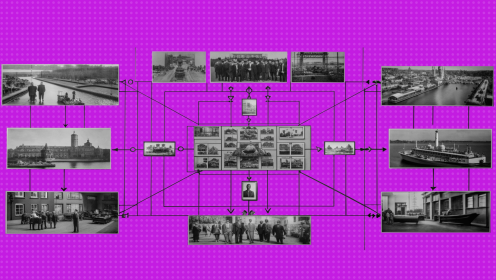Why do we miss deadlines
The problem may lie in the poor organization of work in general (then deadlines fail systematically and almost the entire team) and in the personal approach to work for each employee.
If a specific employee misses deadlines, there are two options:
- 1. He has the wrong attitude to work, and maybe to life in general. It's simple: if you have never followed the regime, then you are unlikely to suddenly start at work.
- 2. There are problems with procrastination. I always want to do anything, but not work. In the course of indulgences and agreements with yourself — the phrase "I don't want to work now", "I'll get up early tomorrow and finish", "no inspiration", "my head hurts" give the go-ahead to shift plans, even if you can't do it. If an employee is still biased about their capabilities, they simply won't have time to do all the work later. Or maybe after the first unsuccessful result, he will lose motivation altogether.
If the whole team has problems meeting deadlines, there are no options — it's about organizing work processes.
On the one hand, it may be the management's inability to get everyone to follow the plan. The consequences are sadder the longer the deadline. Team members may not think at all, work half-heartedly, and when the flame of the burning deadline begins to burn their heels, they frantically try to do something. This is especially bad for the team when they are working on a project that can't be moved because a lot of things depend on it. For example, the issue of a magazine issue or the launch of a product. In order not to miss the deadline, all crunch and soon burn out.
On the other hand, the plan can be followed, but the plan turns out to be so-so. For example, the deadlines were set based on ideal conditions — everyone is working on only one project, no one is sick or goes on vacation, and the customer agrees everything on time. If you do not prepare for potential force majeure, do not take into account the risks, at some point everything can go somewhere, and you can forget about meeting the deadlines.
Tips for self-organization
If you find it difficult to get to work, stay focused, and do everything on time, I have some tips to help you change your approach and avoid missing the deadline. The only thing is that you will have to follow them all, the only way to get a really good result.
Don't let yourself sabotage your workflow
Yes, even if you sat down to work and realized that there are no internal forces. Even if you think you're going to rest now and get back to work in an hour. Most likely, you will not return — the moment is already lost, and the mood will be non-working.
Every time you get distracted, you're hurting your work. Block your access to social networks during business hours. And if you need breaks, do it short and at regular intervals.
Distribute working hours
You have a deadline and working hours before it. Estimate how much time you can devote to the task every day, if it is long — term (if you have a deadline today, then what are you doing here at all-go to work).
Distribute the work on the task and project evenly, laying down time for rest and breaks. You don't have to take a day off today to work twice as hard tomorrow — don't kid yourself, you won't work.
Set yourself notifications
Don't put stickers on your monitor — set up reminders in your phone or the project and task management system you work in. So you are unlikely to lose or miss something.
The main thing is to get reminders in a convenient place: it's easy to skip regular push notifications, and you'll definitely notice notifications in the same Telegram.
Stop missing deadlines and get notifications about issues with WEEEK.
Split the work into parts
If you can't get started on a task because the scale makes you feel bad, break it down and complete it in order.
Even better, if each small part of a large task has its own deadline. So, if you don't finish the task by the main deadline, you will definitely get as close to it as possible.
Tips for organizing team work
If employees are responsible, aware of priorities and deadlines, but still for some reason can not pass the project on time, you, as a Manager, have something to work on.
Keep track of realistic deadlines
Correctly distribute tasks within the plan. Tasks that do not depend on each other can and should be done in parallel, so that none of them is delayed. This is especially true for projects with tight time frames.
Check the execution stages
You can track progress in the task manager, make regular reports, or hold periodic meetings where everyone will talk about what has been done or not done.
You don't need to control everything — if everyone is really responsible, everyone knows better how to complete a particular task. Try to make sure that reporting does not take up a lot of precious time.
Do your job on time
Good plan work on a project: break it all down into tasks and distribute them among the performers. If this is not done, it is likely that when it comes to some narrow specialist, he will be busy with other important things, and will not be able to join the work.
When all participants know what to do and when to do it, they can better plan their working hours.
What to do if time is still lost
When the deadline is on the way, and you do not have a horse lying around, you need to fix it urgently. It's corny, but you can't say otherwise: put aside the rest of your business, try not to procrastinate, and throw all your energy at the task.
If you realize that the deadline, despite all the efforts, you will not have time, be sure to warn the manager (or the customer, if you work with them directly) — just not day in day, but a little ahead of time. Be extremely polite — apologize and explain why the deadline was missed (just don't blame anyone but yourself for this, if it's your fault).
The best thing you can learn from a missed deadline is to realize your mistakes. If you can admit that the deadline burned down because of your fault (and it doesn't matter if you didn't get to the computer on time or didn't organize employees), then you are unlikely to repeat it next time. Don't forget where the weak spot is, and make sure you're safe in advance.
One missed deadline does not reduce your level of professionalism — this can happen to everyone, this is normal. It is another matter if it is repeated from time to time. You will have to reconsider your attitude to the organization of time and develop time management skills. But, by the way, deadlines are not such a bad thing. Without a clear deadline, any project is unlikely to be completed. Make friends with deadlines and use them for good — with the correct setting of tasks, regular breaks, a comfortable pace of work and no delays.


















